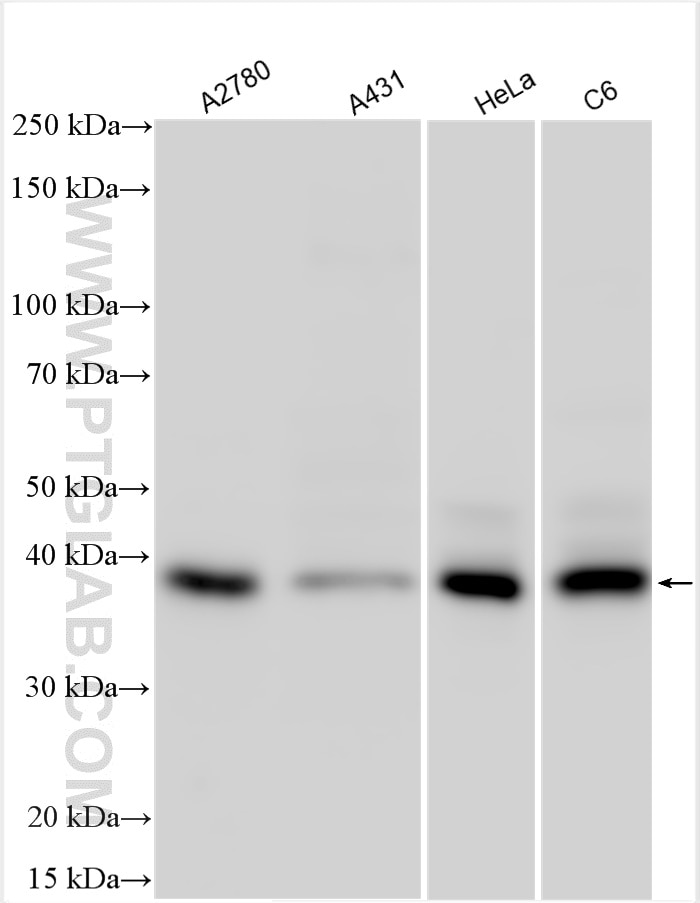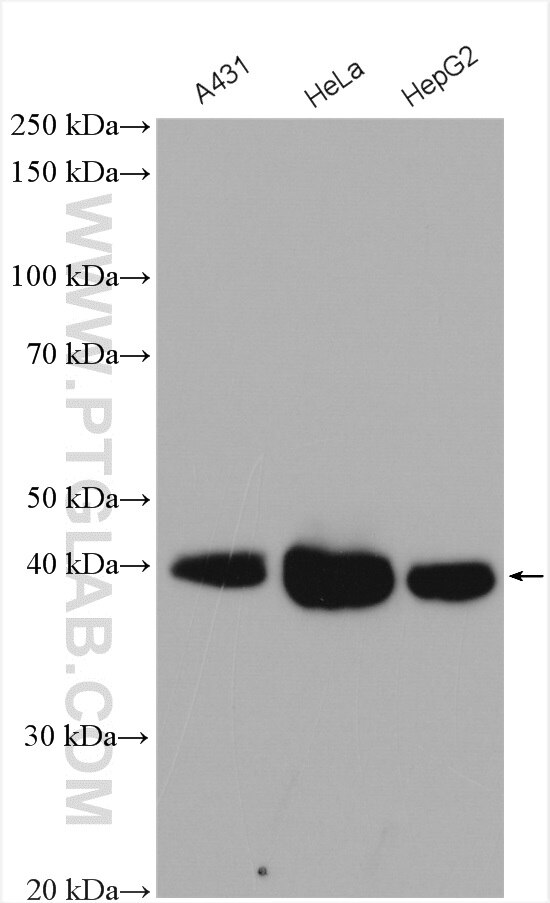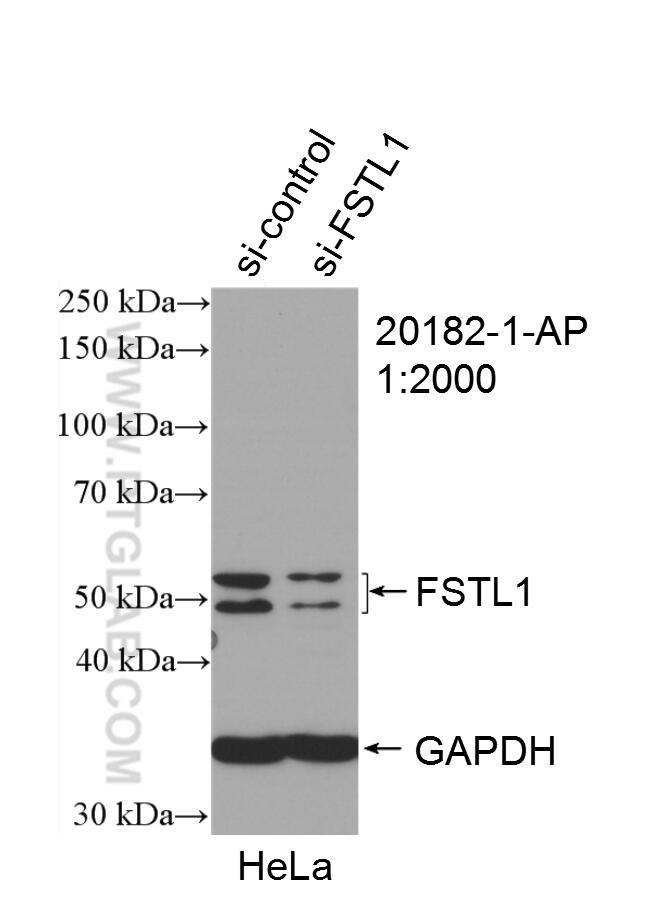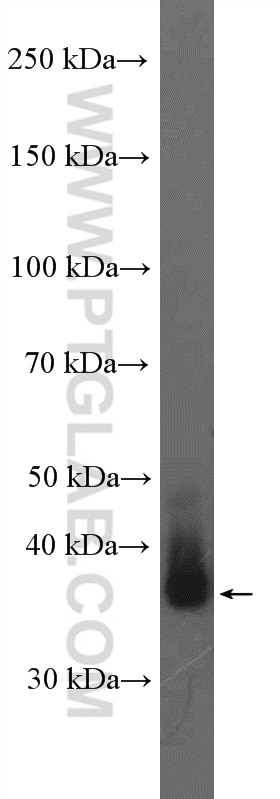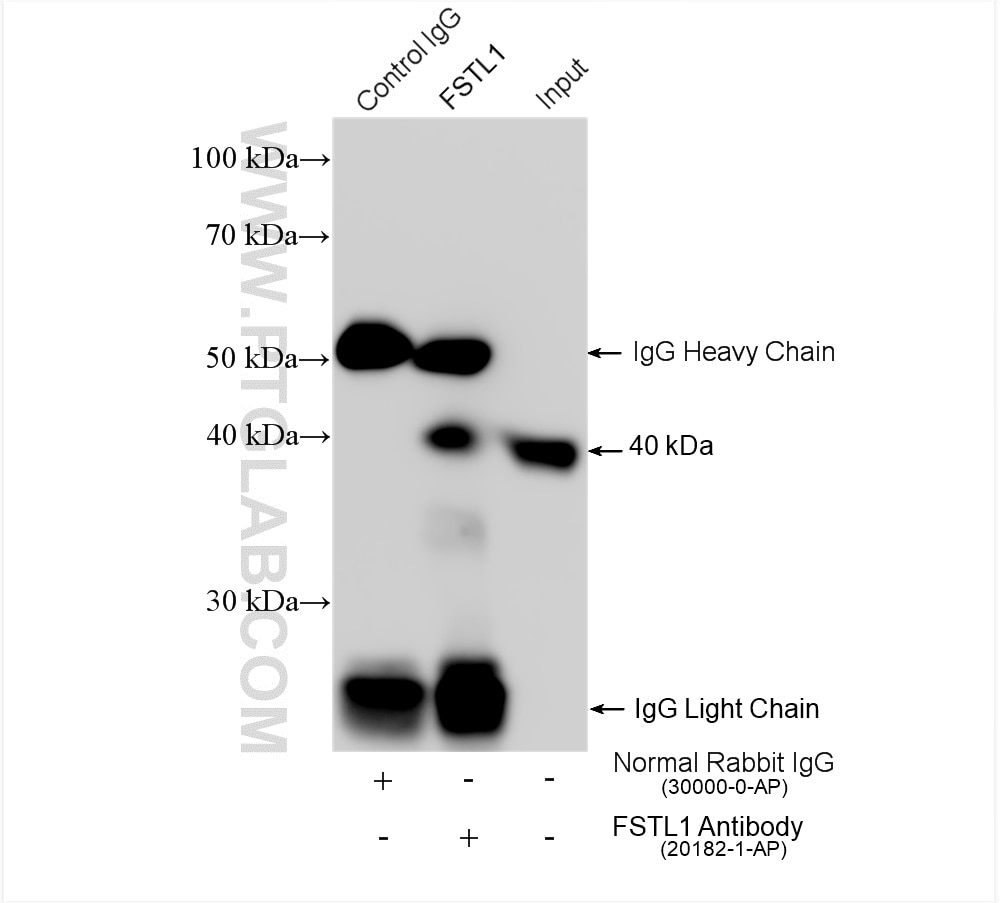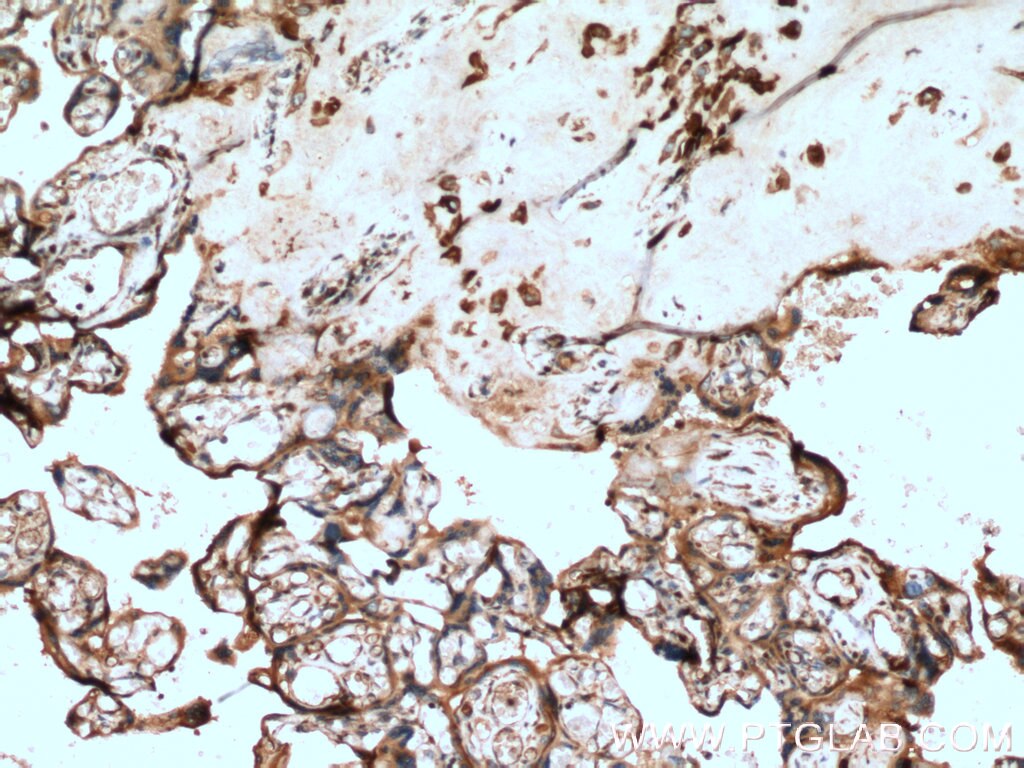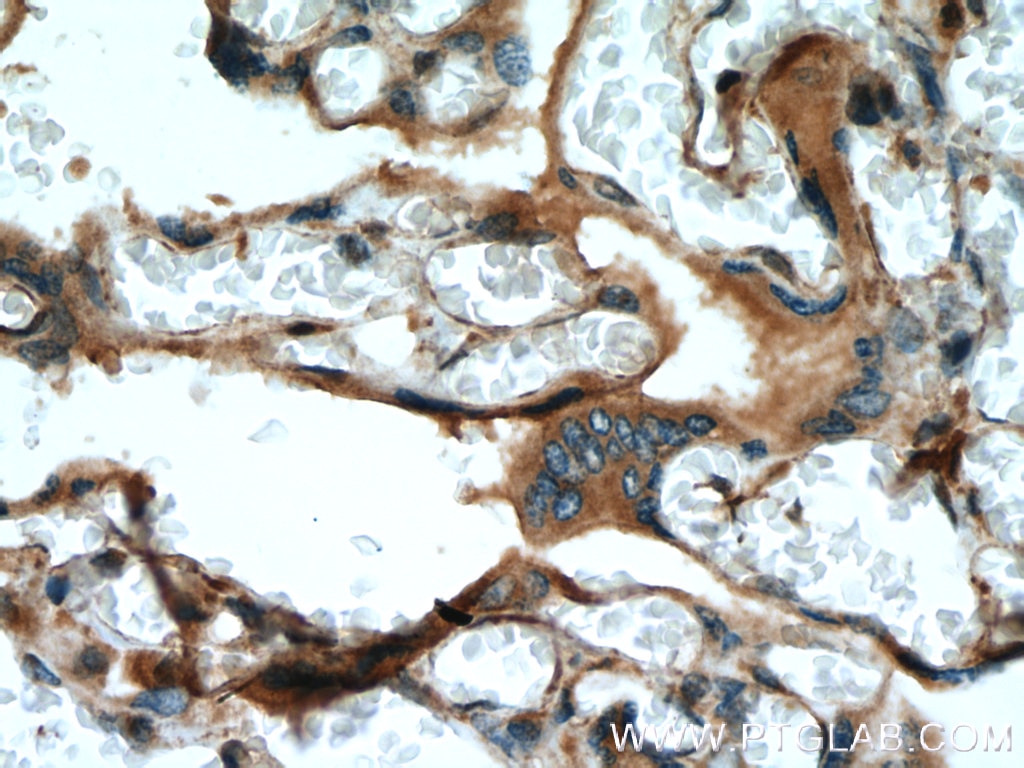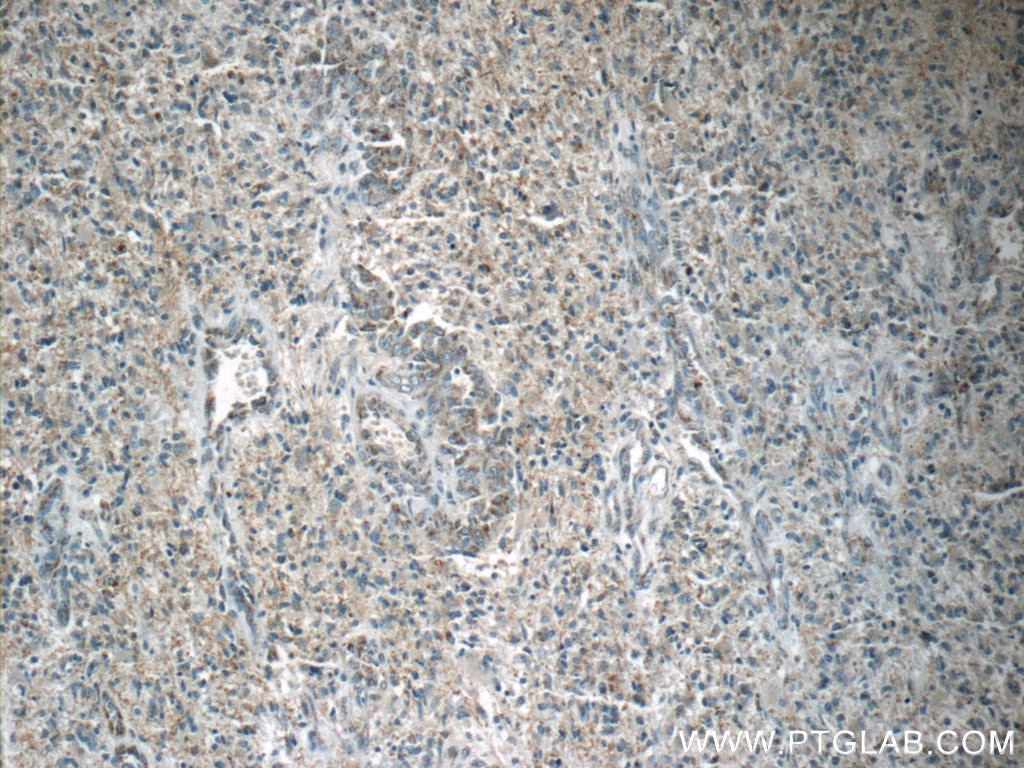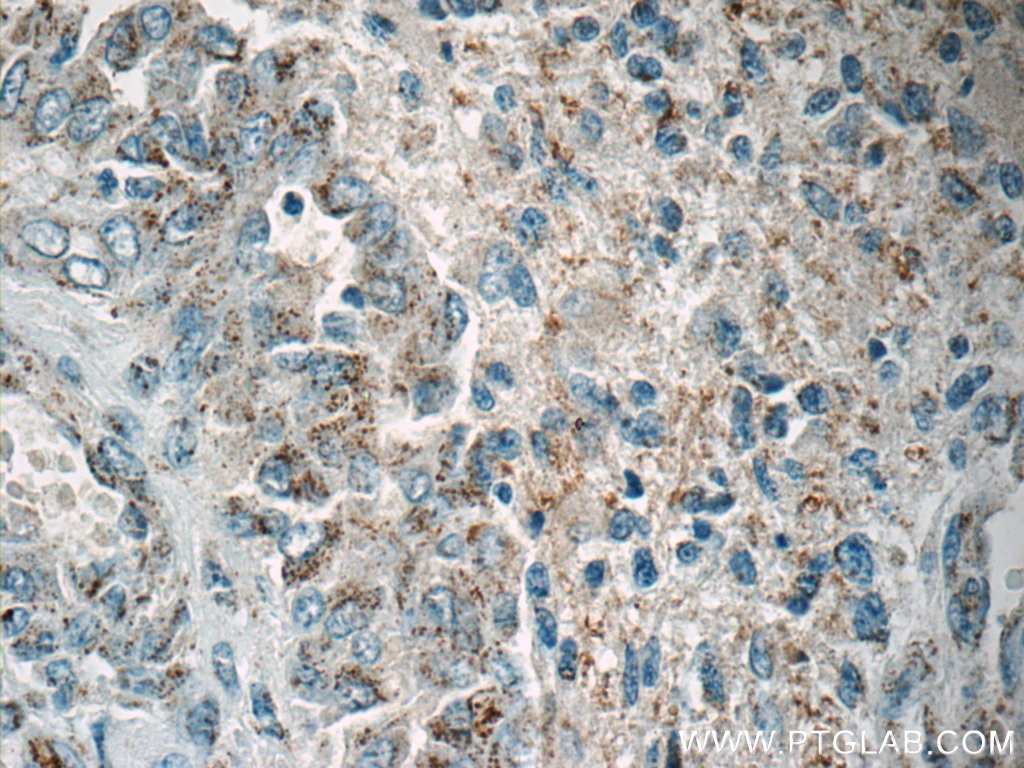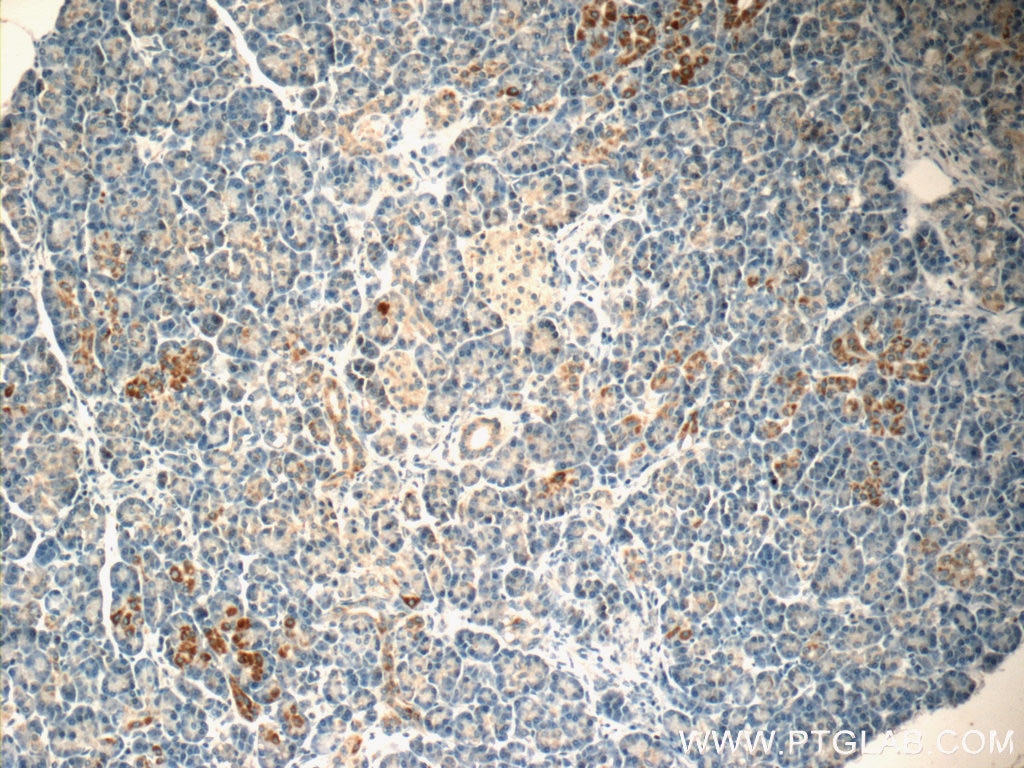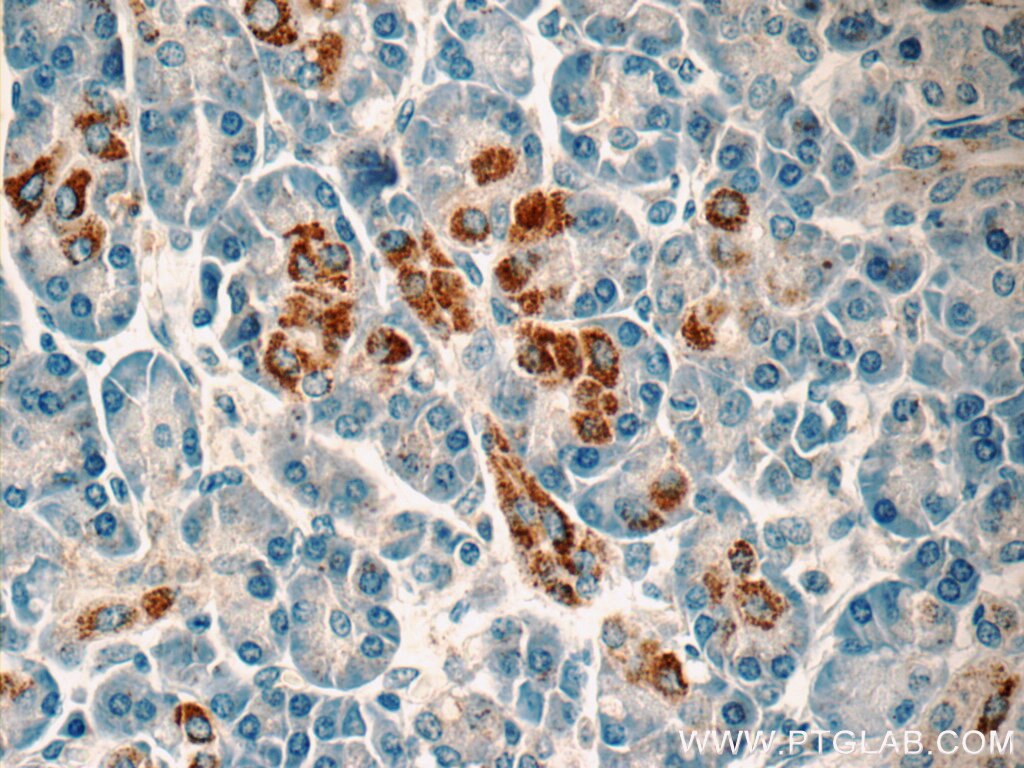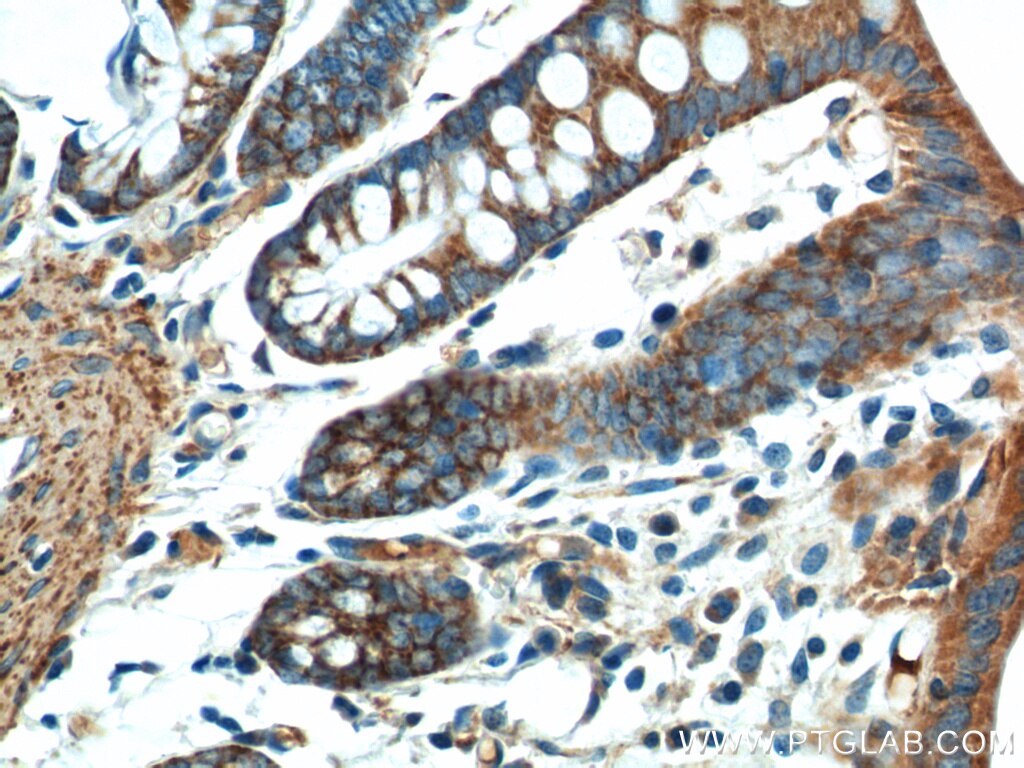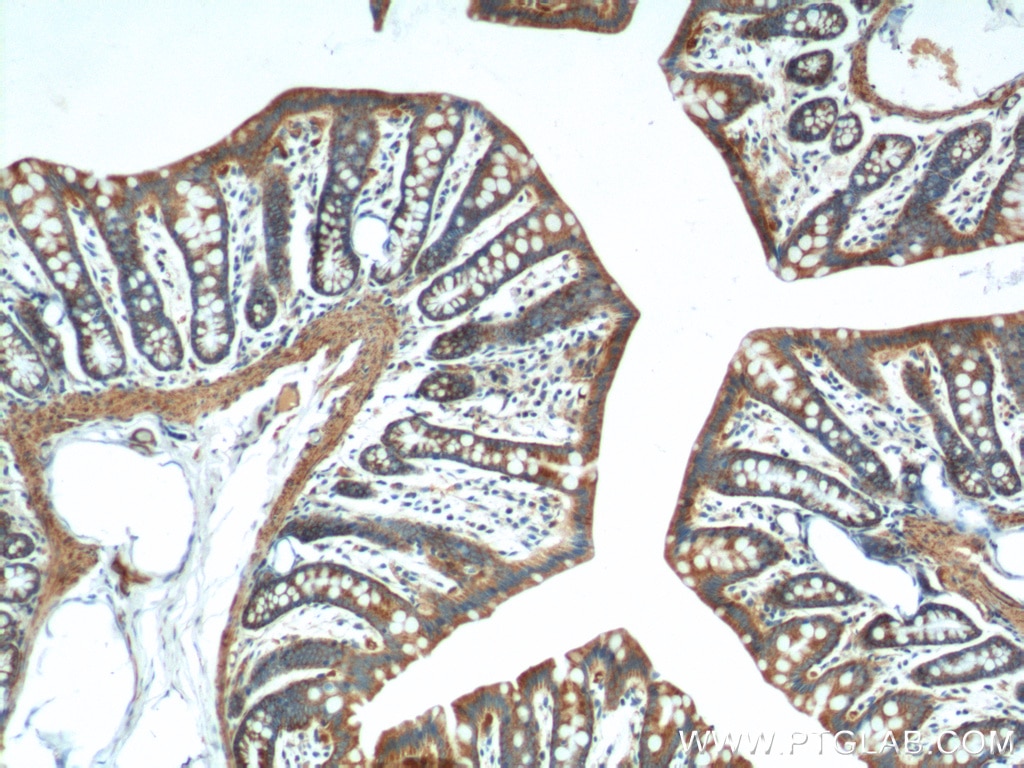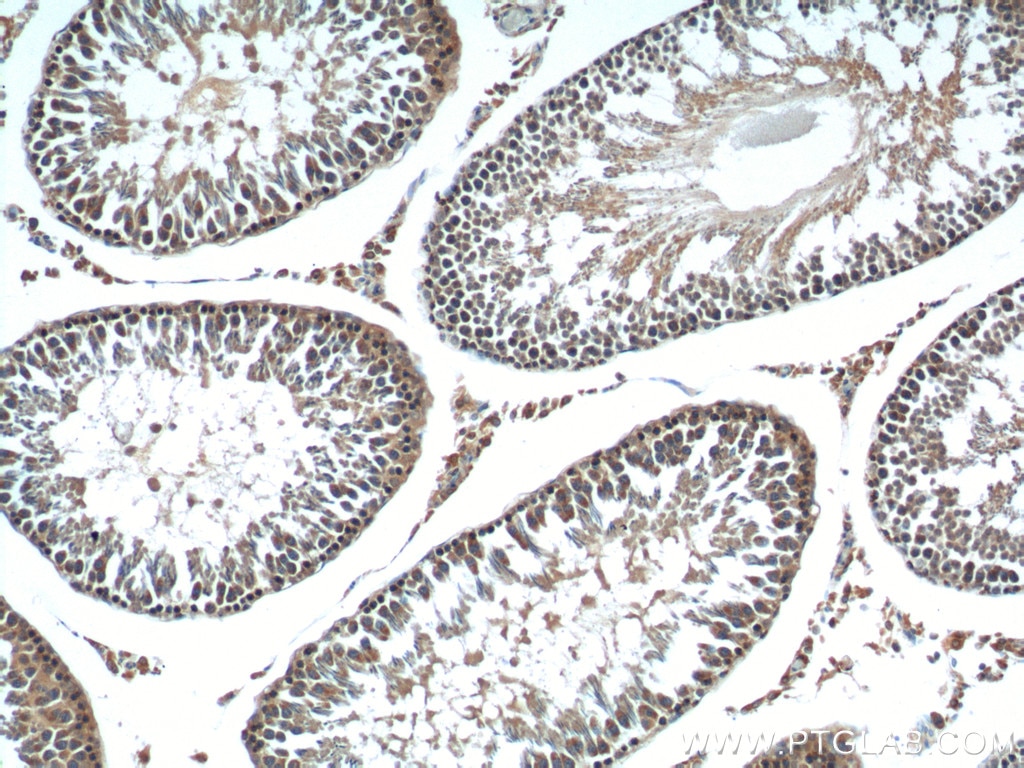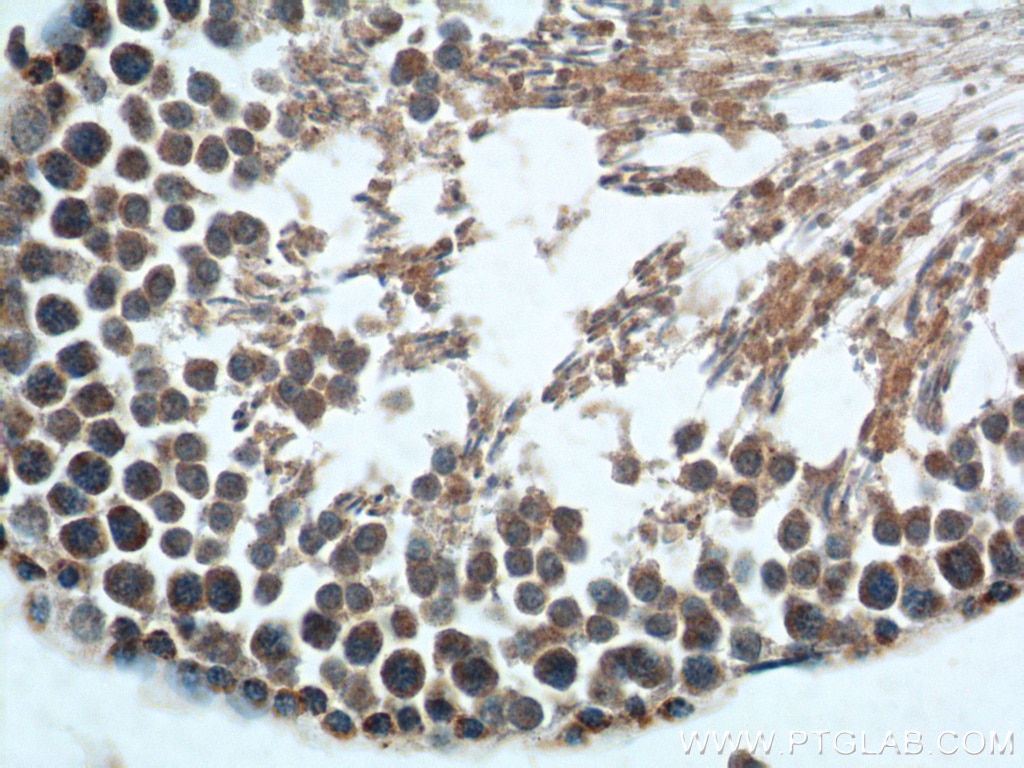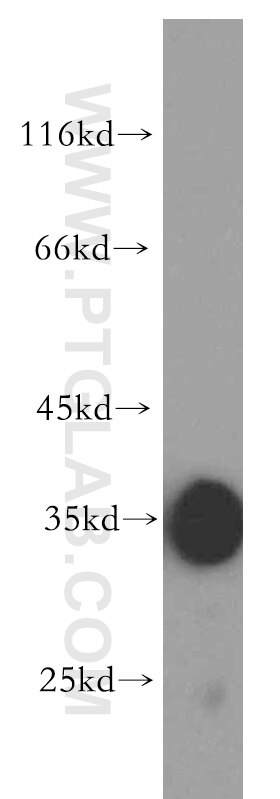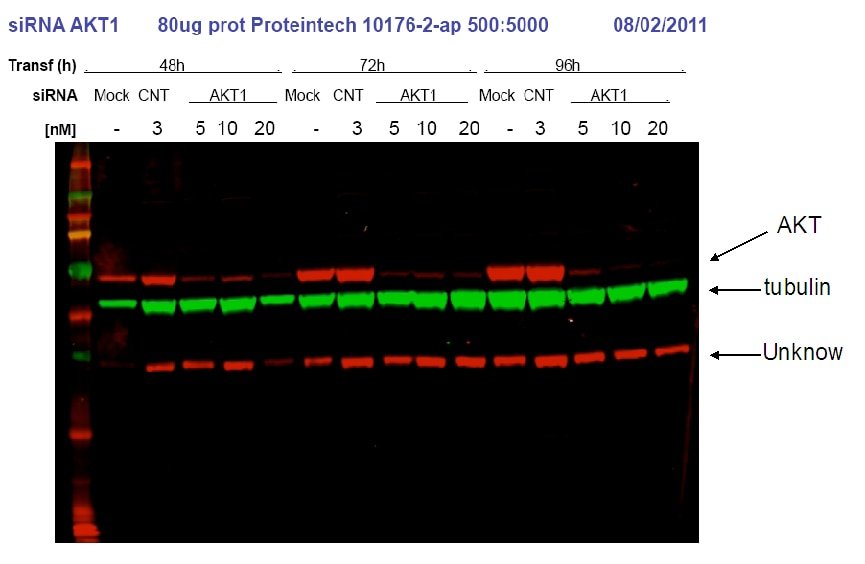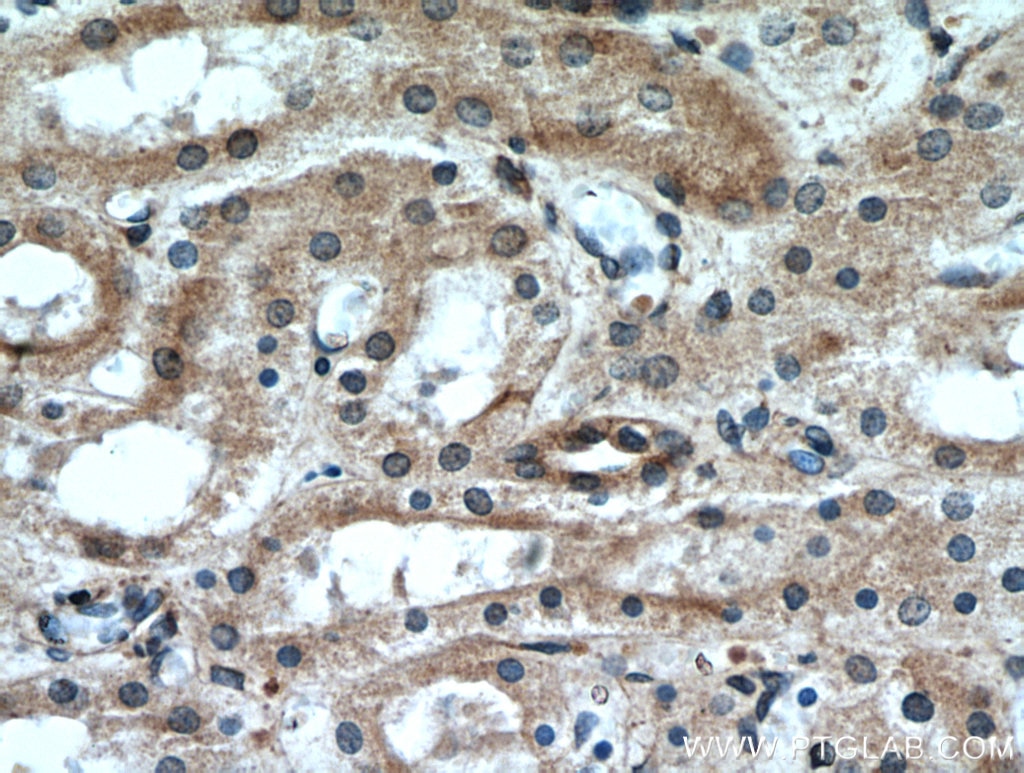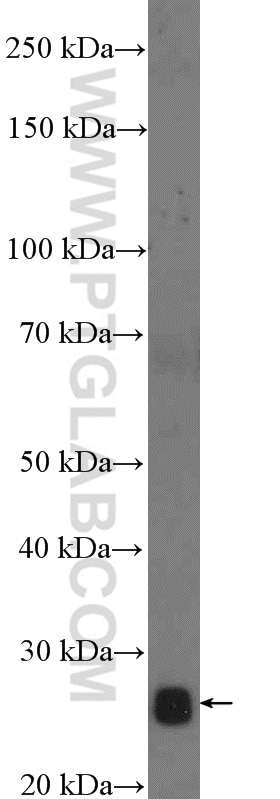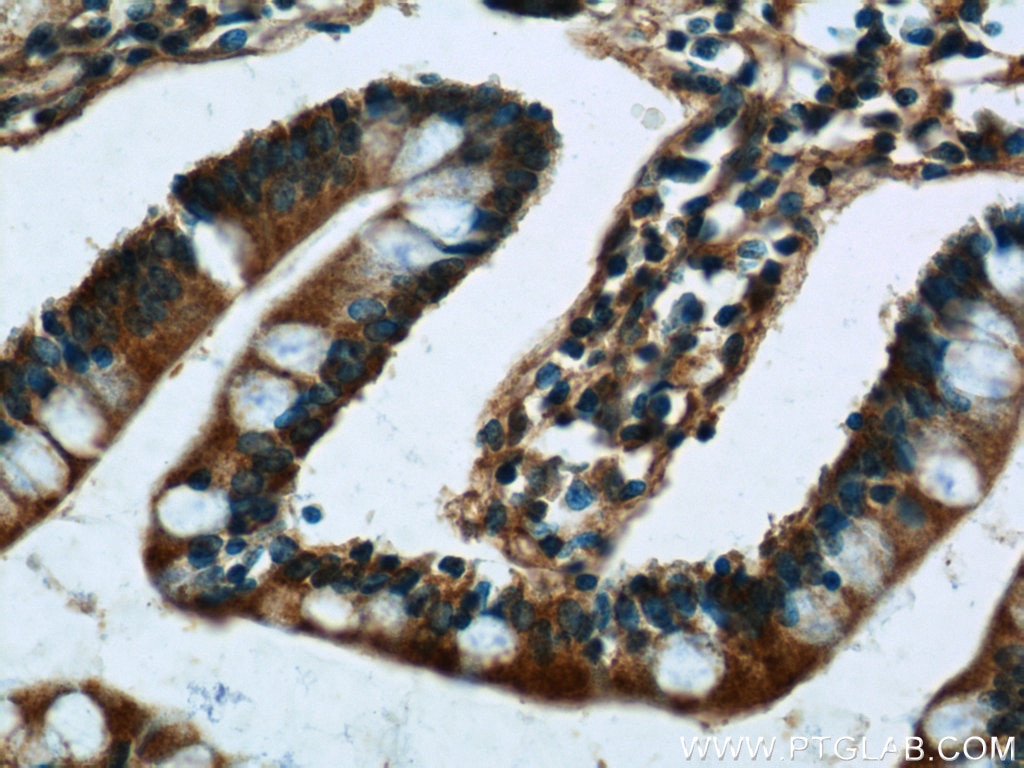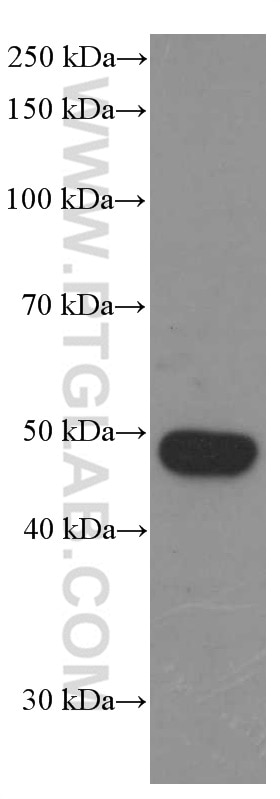- Phare
- Validé par KD/KO
Anticorps Polyclonal de lapin anti-FSTL1
FSTL1 Polyclonal Antibody for WB, IP, IHC, ELISA
Hôte / Isotype
Lapin / IgG
Réactivité testée
Humain, rat et plus (1)
Applications
WB, IP, IF, IHC, CoIP, ELISA
Conjugaison
Non conjugué
N° de cat : 20182-1-AP
Synonymes
Galerie de données de validation
Applications testées
| Résultats positifs en WB | cellules A2780, cellules A431, cellules C6, cellules HeLa, tissu placentaire humain |
| Résultats positifs en IP | cellules A2780, |
| Résultats positifs en IHC | tissu placentaire humain, tissu de côlon de rat, tissu de gliome humain, tissu pancréatique humain, tissu testiculaire de rat il est suggéré de démasquer l'antigène avec un tampon de TE buffer pH 9.0; (*) À défaut, 'le démasquage de l'antigène peut être 'effectué avec un tampon citrate pH 6,0. |
Dilution recommandée
| Application | Dilution |
|---|---|
| Western Blot (WB) | WB : 1:2000-1:10000 |
| Immunoprécipitation (IP) | IP : 0.5-4.0 ug for 1.0-3.0 mg of total protein lysate |
| Immunohistochimie (IHC) | IHC : 1:50-1:500 |
| It is recommended that this reagent should be titrated in each testing system to obtain optimal results. | |
| Sample-dependent, check data in validation data gallery | |
Applications publiées
| KD/KO | See 4 publications below |
| WB | See 10 publications below |
| IHC | See 8 publications below |
| IF | See 3 publications below |
| IP | See 1 publications below |
| CoIP | See 1 publications below |
Informations sur le produit
20182-1-AP cible FSTL1 dans les applications de WB, IP, IF, IHC, CoIP, ELISA et montre une réactivité avec des échantillons Humain, rat
| Réactivité | Humain, rat |
| Réactivité citée | Humain, souris |
| Hôte / Isotype | Lapin / IgG |
| Clonalité | Polyclonal |
| Type | Anticorps |
| Immunogène | FSTL1 Protéine recombinante Ag14057 |
| Nom complet | follistatin-like 1 |
| Masse moléculaire calculée | 308 aa, 35 kDa |
| Poids moléculaire observé | 35-40 kDa |
| Numéro d’acquisition GenBank | BC000055 |
| Symbole du gène | FSTL1 |
| Identification du gène (NCBI) | 11167 |
| Conjugaison | Non conjugué |
| Forme | Liquide |
| Méthode de purification | Purification par affinité contre l'antigène |
| Tampon de stockage | PBS avec azoture de sodium à 0,02 % et glycérol à 50 % pH 7,3 |
| Conditions de stockage | Stocker à -20°C. Stable pendant un an après l'expédition. L'aliquotage n'est pas nécessaire pour le stockage à -20oC Les 20ul contiennent 0,1% de BSA. |
Informations générales
Follistatin-like 1 (FSTL1), initially discovered as a TGF-β1-induced gene, encodes a 308 amino acid secreted 45-55 kDa glycoprotein with a follistatin domain and two non-functional calcium-binding motifs. FSTL1 has been reported to be involved in the fate determination and maturation of epithelial cells. Ablation of the FSTL1 gene in the mouse results in several structural developmental defects and neonatal lethality due to respiratory failure, demonstrating its functional importance. FSTL1 has been reported to exhibit both pro- and anti-inflammatory actions, with a specific anti-apoptotic and protective effect in cardiac or renal cell injury. Zwijsen et al. (1994) detected several isoforms of FSTL1 with molecular masses of 40 to 48 kD which differs from the 50- to 55-kD products detected by Tanaka et al. (1998) (OMIM).
Protocole
| Product Specific Protocols | |
|---|---|
| WB protocol for FSTL1 antibody 20182-1-AP | Download protocol |
| IHC protocol for FSTL1 antibody 20182-1-AP | Download protocol |
| IP protocol for FSTL1 antibody 20182-1-AP | Download protocol |
| Standard Protocols | |
|---|---|
| Click here to view our Standard Protocols |
Publications
| Species | Application | Title |
|---|---|---|
J Exp Med EGF hijacks miR-198/FSTL1 wound-healing switch and steers a two-pronged pathway toward metastasis. | ||
Bone Res Single cell analysis reveals inhibition of angiogenesis attenuates the progression of heterotopic ossification in Mkx-/- mice. | ||
Cancer Res Follistatin-like Protein 1 Inhibits Lung Cancer Metastasis by Preventing Proteolytic Activation of Osteopontin.
| ||
Cell Death Dis FSTL1 interacts with VIM and promotes colorectal cancer metastasis via activating the focal adhesion signalling pathway. | ||
Aging (Albany NY) Follistatin-like 1 deficiency impairs T cell development to promote lung metastasis of triple negative breast cancer.
| ||
Am J Cancer Res FSTL1 promotes growth and metastasis in gastric cancer by activating AKT related pathway and predicts poor survival.
|
